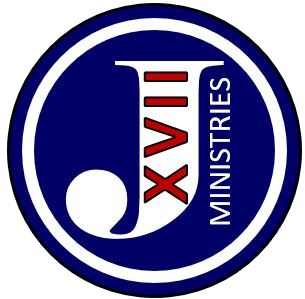Identity Lost
Anytime we over-identify with something not built to handle the weight we’re placing on it, a collapse is inevitable. In telling some of my own story, I’ve identified my junior high wit and words, my denomination, and my ministry as three areas at different stages of life that functioned as idols. If you’d asked me in any of those seasons who I was, I might have said something like, “I’m the cutdown king,” or “I’m a Lutheran pastor” or simply “I’m a pastor.” Unless I recognized the question as a religious test, it’s unlikely that I would have answered more accurately,
I’m a child of God. I was handcrafted by a loving God, who then came and gave everything He had so I could discover who I really am. Everything else is just details.
There are plenty of pitfalls we can unwittingly fall into around the question of identity. My job got more of my attention than my marriage and family did for many years, but it’s just as easy to trip and land in the ditch on the other side of the road, turning family into an idol. Our marriages weren’t designed to carry the full weight of our identity! When our spouse is our only friend, when we rely on our spouse exclusively for encouragement or validation, or simply when we can’t imagine any length of time apart from our spouse, it should be obvious that we’re asking for trouble. At best, our spouse is mortal. And not just mortal, but imperfect, too – just like we are. It’s unfair to the person we married to put that much weight on something not built to carry it. Same with our kids. It’s a sad sight indeed when parents are living vicariously through their kids – at a sporting event, an academic contest, or some fine arts performance. Let your kids be your kids, and don’t require them to live the life you wished you could.
Image: MartinHarry/Pixabay
The pitfall possibilities are bottomless! We can over-identify with our ethnicity. I’ll never forget my Latino pastor friend Dak saying one day, “My Hispanic heritage didn’t die for me; Jesus did.” We can over-identify with our image or reputation or accomplishments. We can over-identify with our hobbies, our entertainment, or anything else that shows up in our calendars. The Biblical/theological term for this over-identification is idolatry. An idol isn’t simply a statue we handcrafted; no, we’ve become far more creative than that. As Tim Keller says,
An idol is anything more important to you than God, anything that absorbs your heart and imagination more than God, anything you seek to give you what only God can give you. (*1)
Idols cannot simply be removed. They must be replaced. If you only try to uproot them, they grow back. (*2)
Of course, the reason this entire topic is being addressed is my contention that a very high percentage of voters who self-identify as Christian have over-identified with their political party. When we place our identity or a major portion of it in something secondary, we damage not only ourselves but the object of our affection. We’re hurting not only ourselves but the country when our identity gets wrapped up in political parties. Outside of a case of stolen identity, I have no explanation for many of the Facebook posts I’ve read from Christian leaders – both sides of the aisle. I can’t think of anything else than politics that would inspire the same kind of behavior from those of us who know better.
Americans love competition – it’s built into our free enterprise system, and it dominates much of our entertainment, whether sports, musical shows like American Idol, or reality shows like Survivor or Bachelor or Shark Tank. I’m as competitive as they come, so for me to argue against competition would be hypocrisy of the highest order. The problem isn’t competition; it’s in misunderstanding the opponent. The opponent isn’t an enemy to be demonized. Healthy sports competition brings out the best in all involved. Political “competition” is supposed to do the same – in a healthy exchange of ideas, new and stronger possibilities emerge. Wishing the worst for the other party is like passengers on an airplane hoping for the pilot’s demise. If the pilot goes down, we’re all going down with him/her. When “declaration of war” is the language used to describe the relationship between the donkeys and elephants 3 , we’re engaged in another Civil War – words for now, but what comes next?
Tim Keller, Counterfeit Gods: The Empty Promises of Money, Sex, Power, and the Only Hope That Matters (New York: Dutton, 2009), xvii.
Ibid, 155.
https://www.foxnews.com/opinion/david-bossie-trump-impeachment-vote-is-democratic-declaration-of-war-republicans-must-declare-war-on-dems, November 1, 2019.

